Suicide Prevention
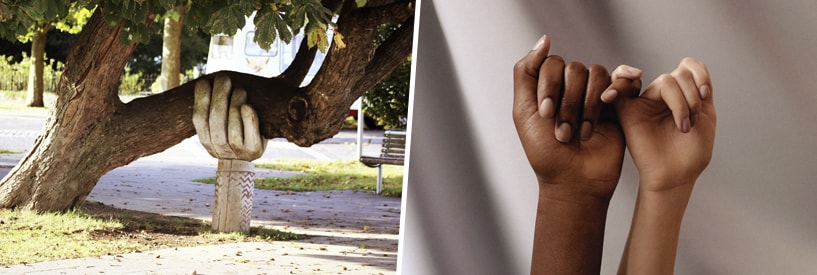
Emergency Resources
Please see the emergency contact information page in the case of a crisis.
- The Counseling Center – 410-617-2273
- 24/7 After Hours Counselor (Counseling Center) 410-617-5530
- Grassroots Suicide Hotline – 410-531-6677
- Baltimore Crisis Response Suicide Hotline – 410-752-2272
- First Call For Help Suicide Hotline (English & Spanish) 1-800-492-0618
- Suicide and Crisis Lifeline: 988
- Crisis Text Line – Text START to 741-741
Each day in the U.S., an average of three college students die from suicide. That’s three extended families, three constellations of friends, and three campuses forever changed by suicide.

The Loyola University community - students, staff, and faculty - can make a difference in preventing suicide and supporting students who are struggling. This semester, the Counseling Center’s Public Health efforts focus on Suicide Prevention. The campaign shares resources that raise awareness about suicide, help us recognize the warning signs of suicide, and provides information about how to get help for yourself or others.
Recognize the Warning Signs
While we cannot predict whether someone will attempt suicide, there are some warning signs to pay attention to:
- Talking about wanting to die
- Looking for ways to kill oneself
- Talking about feeling hopeless or having no purpose
- Talking about feeling trapped or being in unbearable pain
- Talking about being a burden to others
- Increasing use of alcohol or drugs
- Exhibiting anxiety, agitation, or recklessness
- Sleeping too much or too little
- Withdrawing socially or becoming increasingly isolated
- Showing rage or talking about seeking revenge
- Displaying extreme mood swings
- Giving away necessary or cherished personal possessions
- Engaging in communication or behaviors that seem to signal goodbye to people and places
It's also helpful to keep in mind that when someone has experienced chronic depression and begins to show signs of improvement, this may be a time to check as it can also be a time of increased risk.
If you or someone you know is displaying the warning signs listed above or making suicidal statements, contact the Counseling Center at 410-617-2273 or another Emergency Resource right away.
How To Get Help
If anyone you know, including yourself, is struggling with suicidal thoughts, get help immediately.
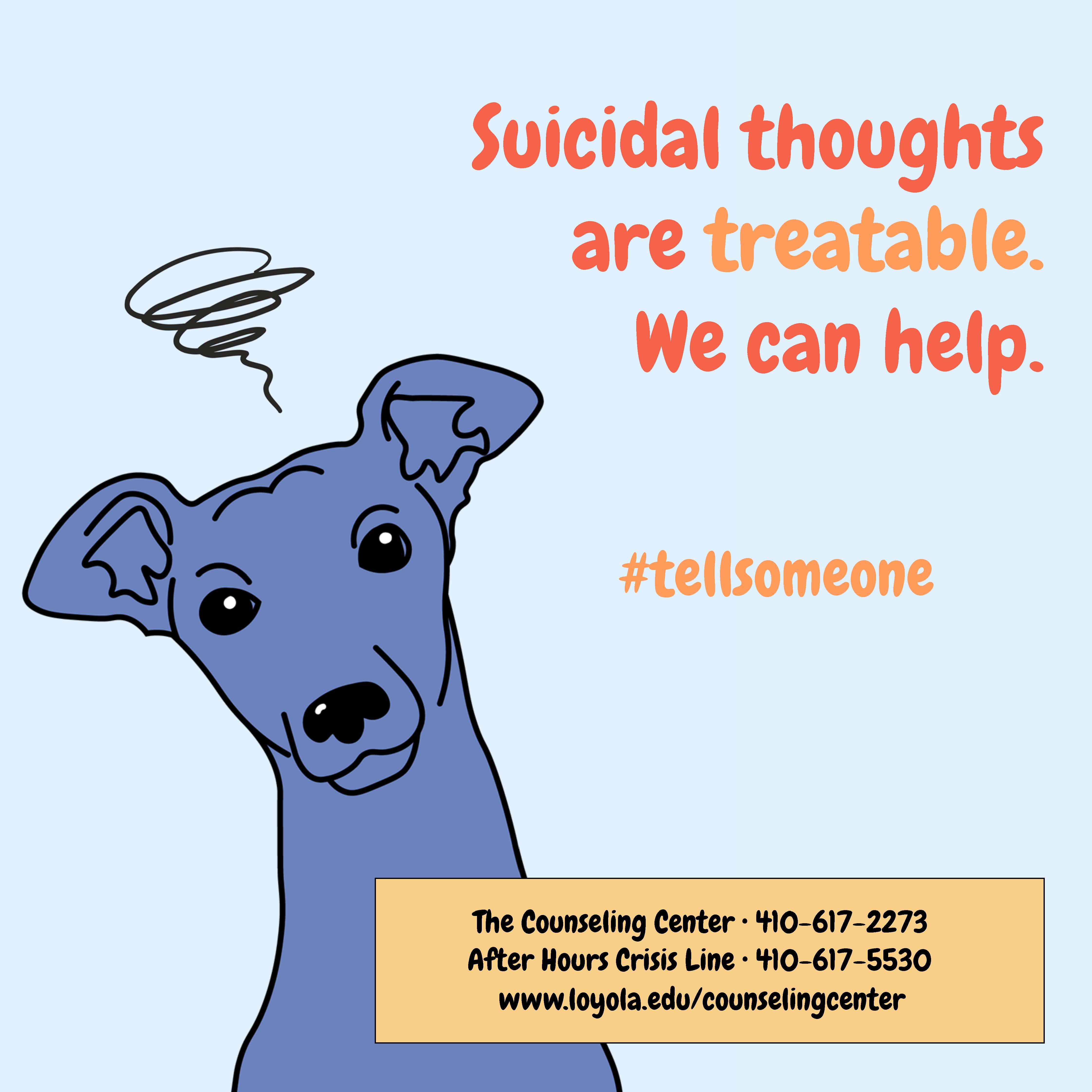
During office hours, call the Counseling Center at 410-617-CARE (2273). For after hours support, call 410-617-5530. If you are with someone at risk and cannot get them to the Counseling Center, don’t leave them alone. Contact one of the above resources or the Department of Public Safety (410-617-5911) and stay with the person until help arrives.
Finally, if you are worried about a friend, a roommate, or yourself, visit us any weekday, 8:30 am - 5 pm, in Humanities Center 150 (up the spiral steps in the turret, near the big curving bench), or check out our web page for Helping a Friend.
We Care. We’re here to help. Let’s Talk.
Helping a Friend
Sometimes we may notice that people are discussing suicide in more colloquial ways that minimize its seriousness. We understand that generational norms include using language in different ways. However, we always want to make space to be open about the presence of suicidal thoughts. It’s important to humanize this experience without minimizing the very real depth of its impact. Remember, if you ask a friend directly if they are being serious about expressions of suicide, even if said in jest, you're asking won’t “plant the thought” and allows for clarification for you and them on what they mean when expressing certain things.
Consider these tips for helping a friend:
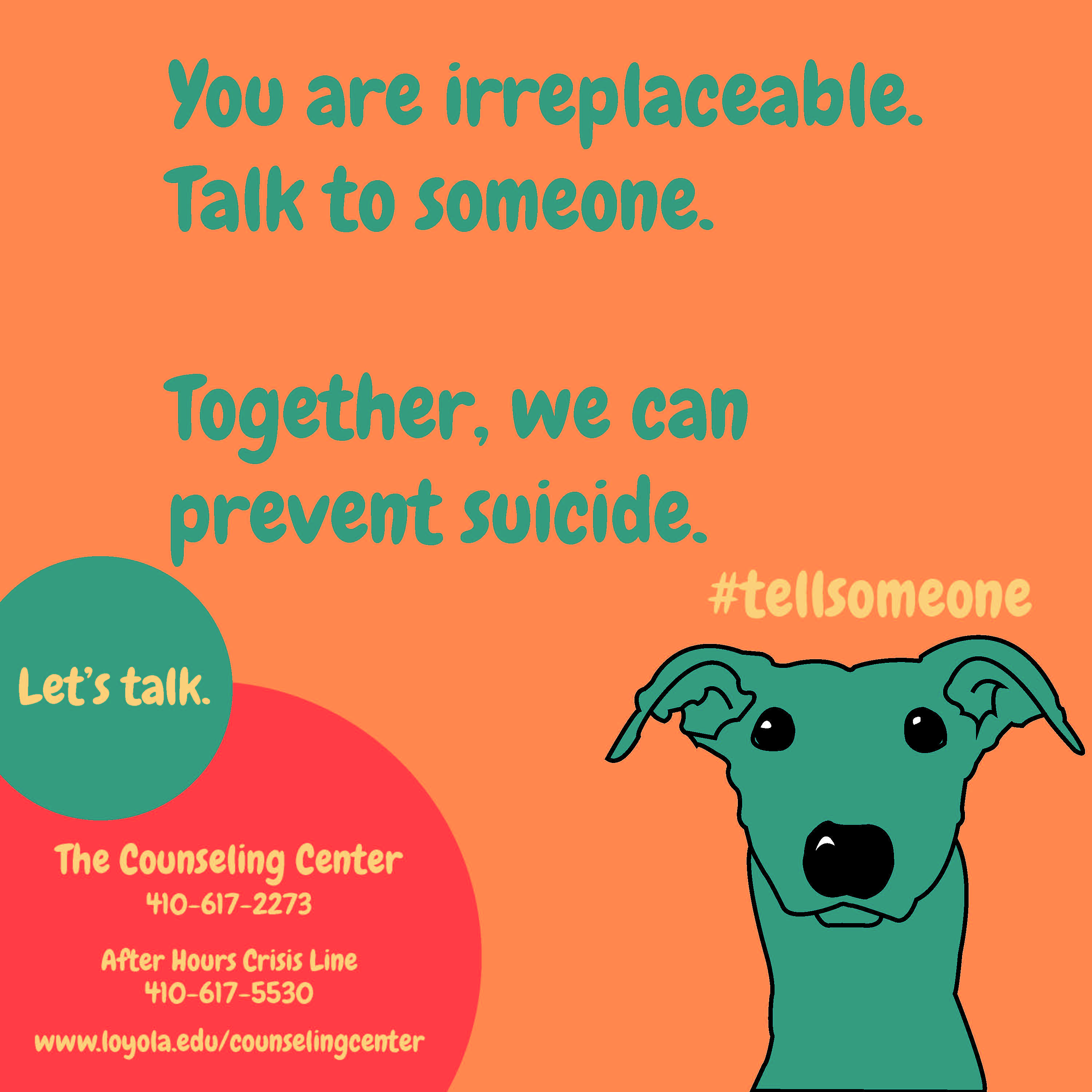
- Listen Attentively: Show you are actively engaged in the conversation through the use of eye contact, nodding, and minimal encouragers (e.g. “Go on…,”).
- Reflective Communication: Restate or summarize what your friend is saying to demonstrate understanding (e.g. “It sounds like you are feeling…,” “I’m hearing that…”).
- Express Care/Concern: Demonstrate empathy, provide emotional support, and offer encouragement.
- Be Direct: Do not be afraid to ask about suicide. Asking about suicide does not cause suicide to occur. Bringing up the topic of suicide can provide an opportunity for someone to share about having suicidal thoughts that they may have kept hidden otherwise.
- Speak up and Seek Support: If you or someone you know are experiencing suicidal thoughts, seek immediate help by contacting the Counseling Center (410-617-2273), After-hours Crisis Line (410-617-5530), or 911.
- Express concern to your friend directly and the need to contact emergency supports to help ensure their safety and well-being. Stay with your friend until they are connected with emergency supports.
Other Resources
- To learn more about suicide prevention, visit the Suicide Prevention Resource Center
- The Jed Foundation: Offers Warning Signs and Guidance on how to help a friend.
- Jason Foundation: The A Friend Asks App is dedicated to the prevention of suicide through educational and awareness programs.
- Please see the emergency contact information page in case of a crisis.
- Consider joining the Green Bandana Brigade as a mental health advocate to help destigmatize mental health and help peers connect with resources
- Download, save, and share the posters below
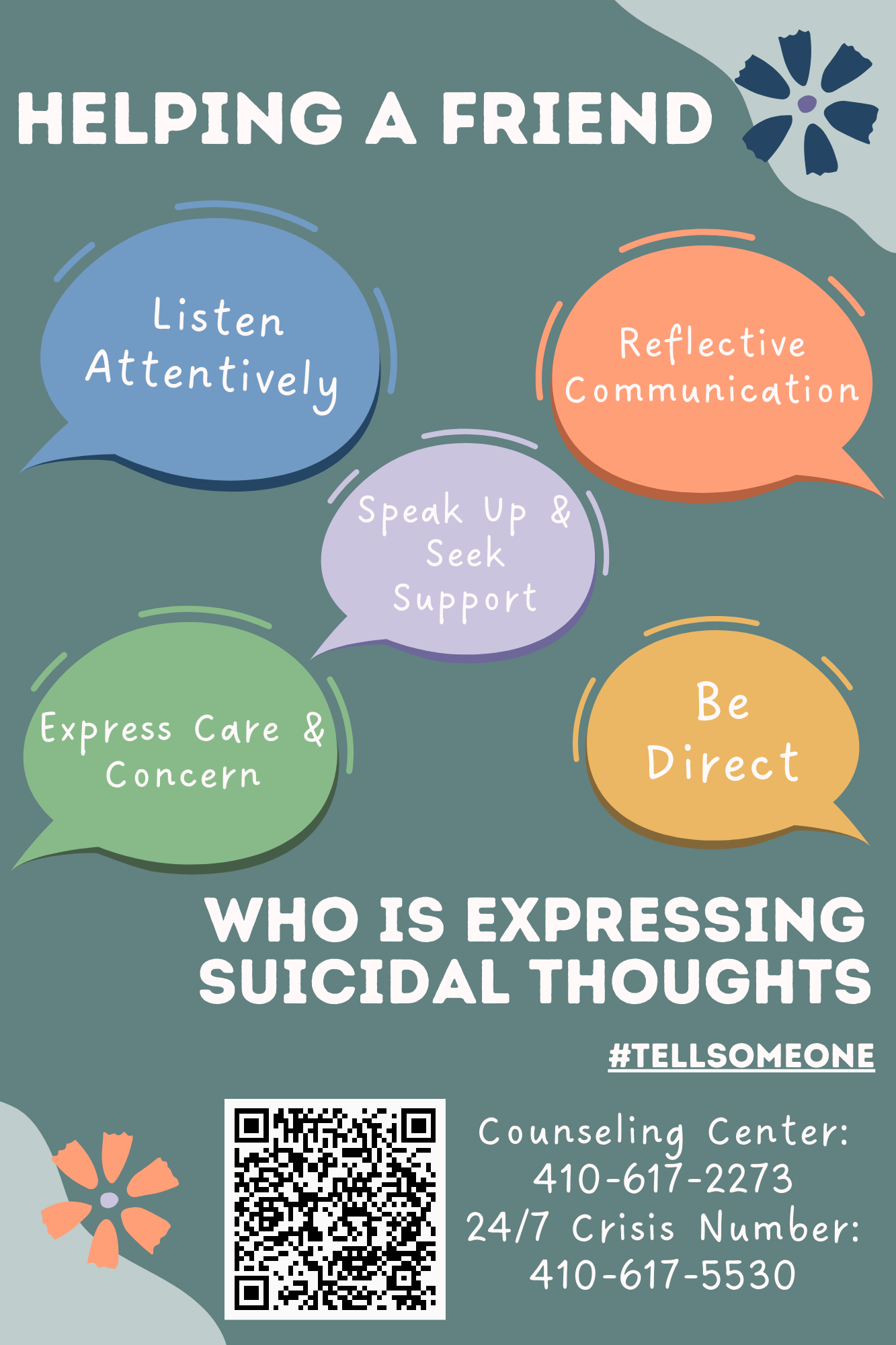
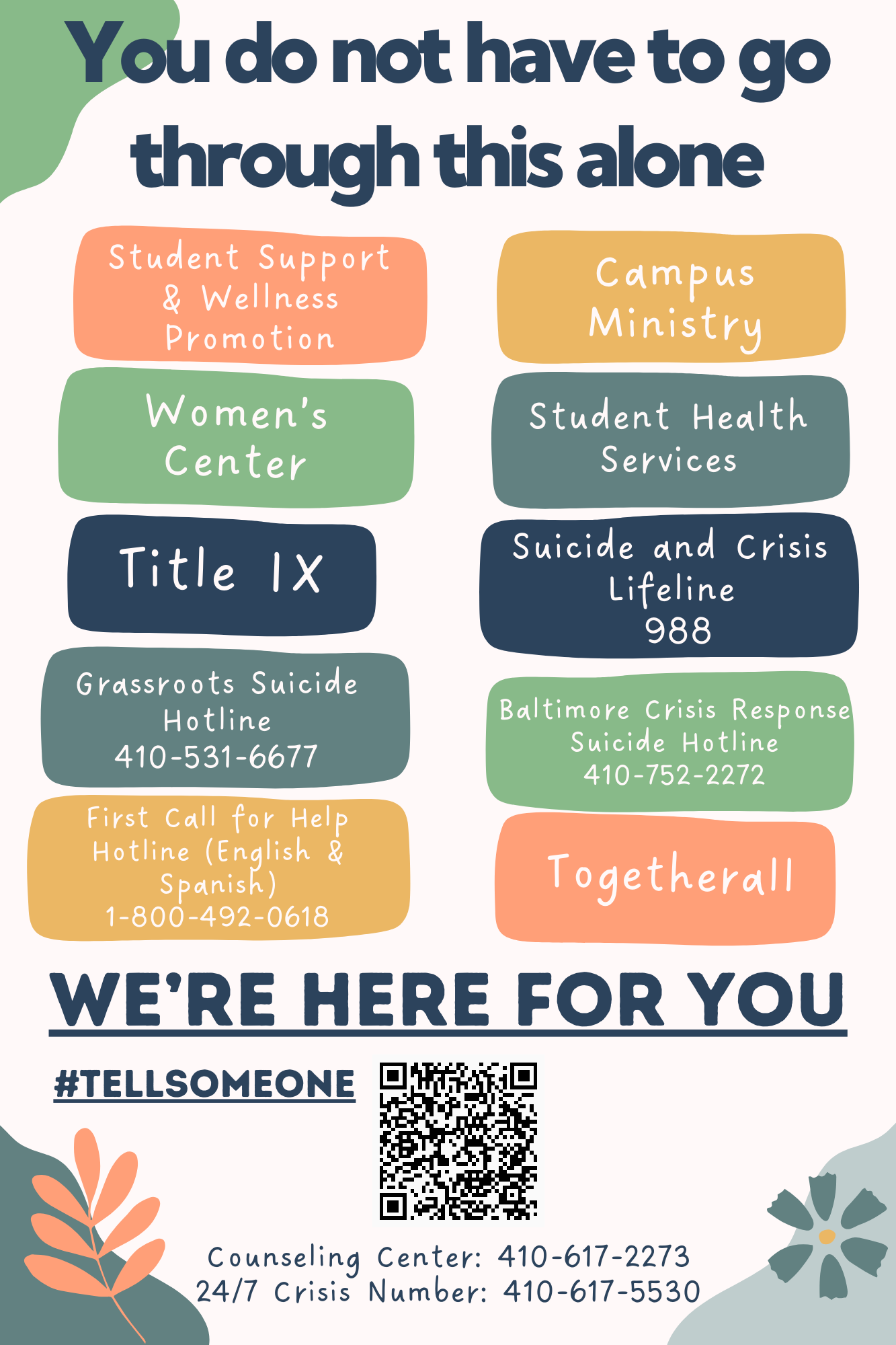
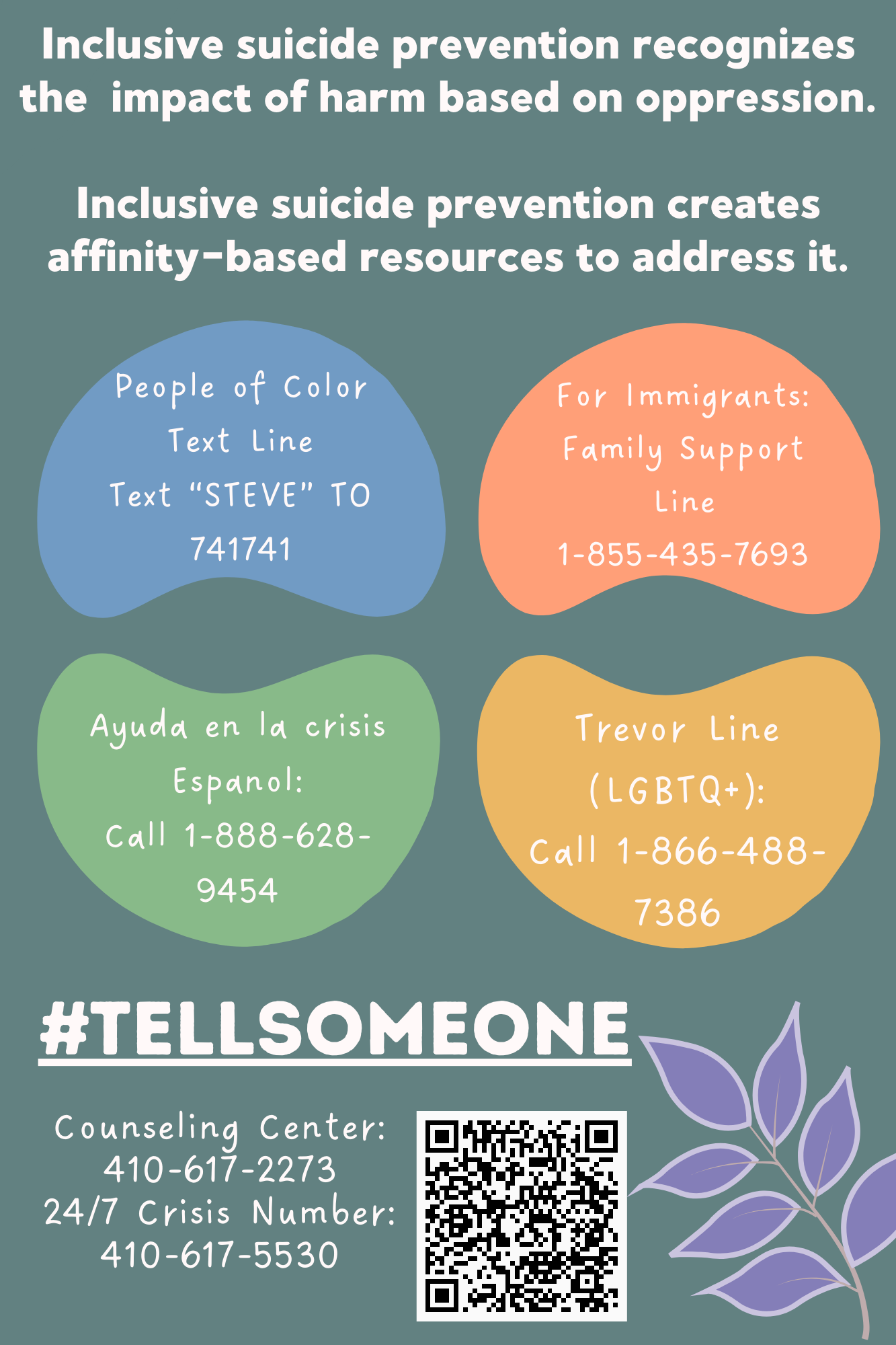
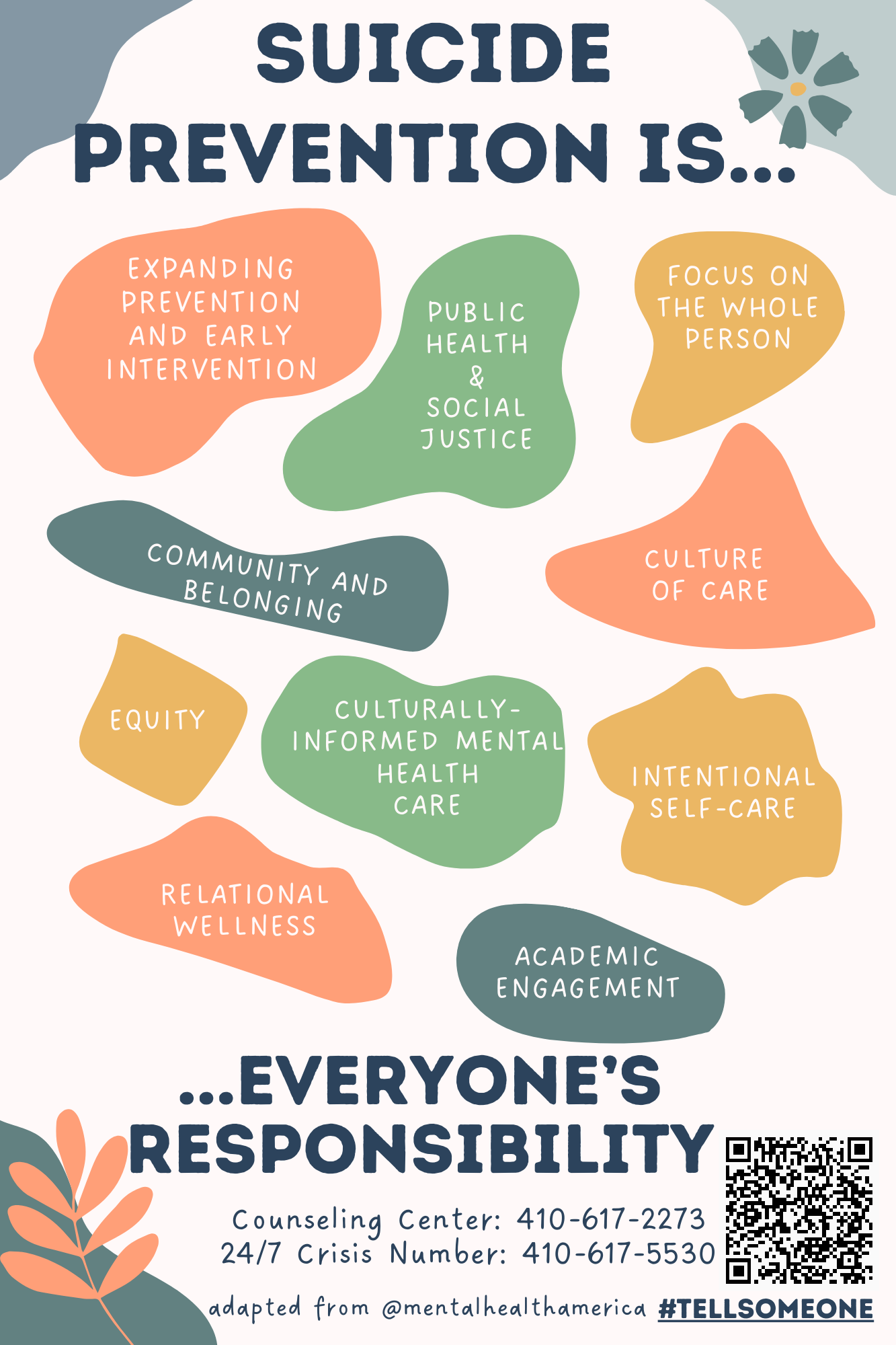
Follow @loyolamd_counselingcenter on Instagram for additional resources and information throughout the semester.
Contact Us
Humanities, Room 150One flight up the turret entrance
Phone: 410-617-CARE (2273)
Call to schedule an appointment
Monday - Friday, 8:30 a.m. - 5 p.m.